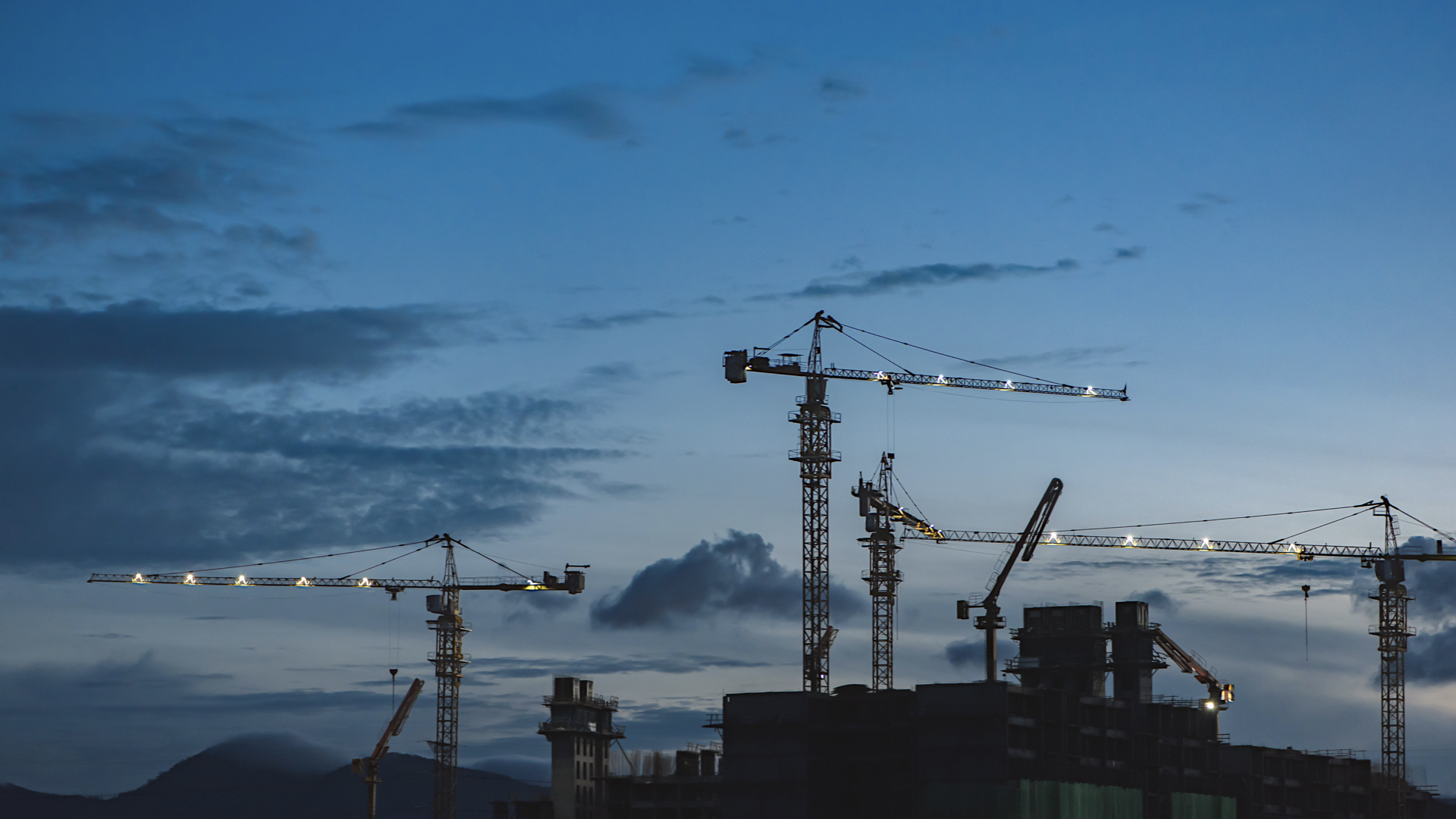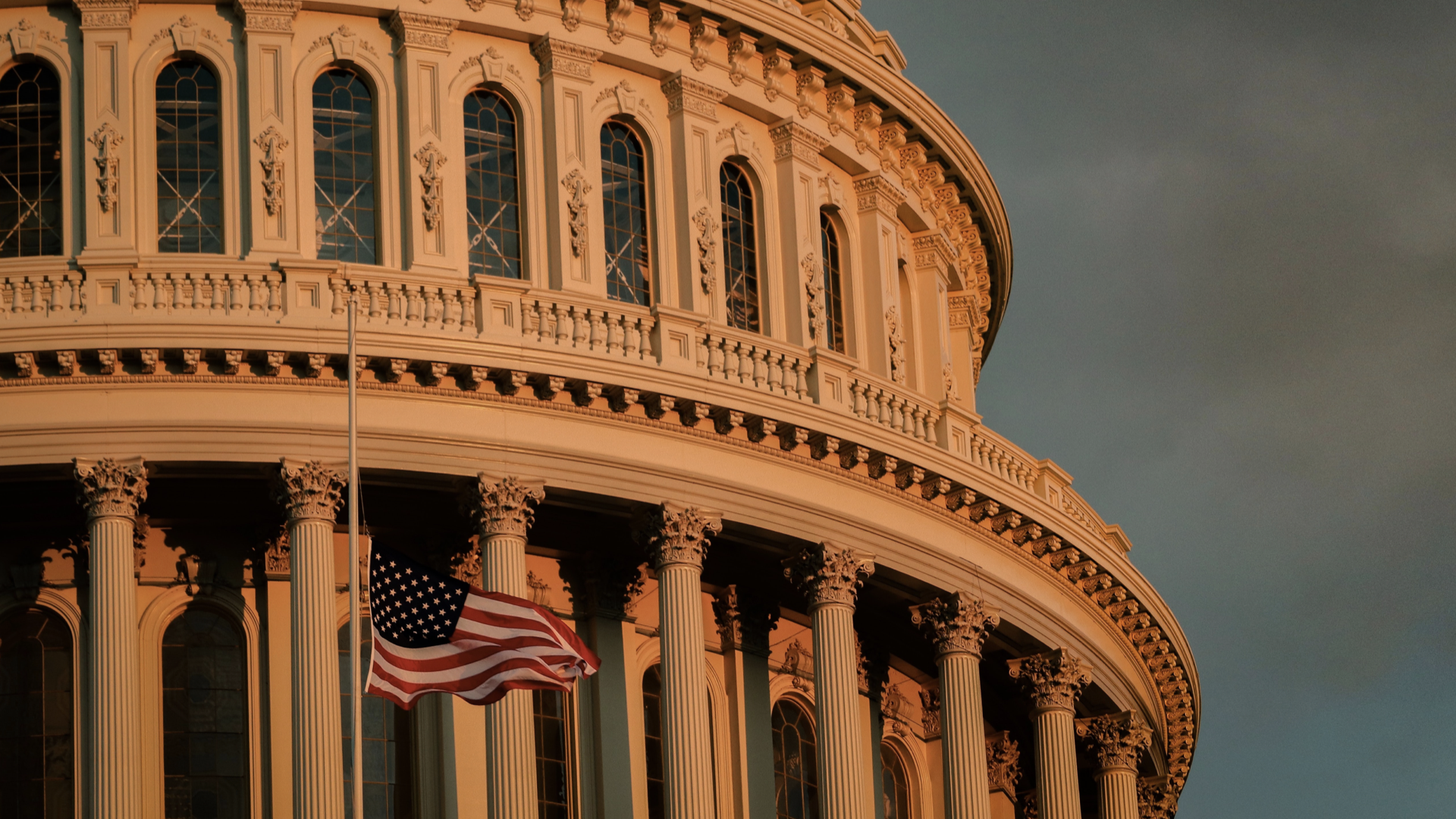U.S. President Joe Biden is celebrating a bipartisan deal that’s advancing in the Senate for $550 billion to fund a major investment in America’s infrastructure, including roads, bridges, public transit, and the modernization of the nation’s power grid. As The New York Times framed it, this development was a “vindication of his faith in bipartisanship and a repudiation of the slash-and-burn politics of his immediate predecessor,” Donald Trump, as “Biden has held up the promise of a broad infrastructure accord not just as a policy priority but as a test of the fundamental rationale for his presidency.” It’s not guaranteed that the agreement will pass, and the deal already has critics in the Democratic Party, but last week also brought a reminder that many on the left are positioning themselves as “pragmatic progressives.” That’s how the executive director of Our Revolution, a political group that emerged out of Senator Bernie Sanders’ first presidential campaign, described himself and his colleagues to the Associated Press. “Rather than insisting on ’Medicare for All’—Sanders’ trademark universal, government-funded health care plan—or the climate-change-fighting Green New Deal,” the AP reported, “Our Revolution is focusing on the more modest alternatives endorsed by … Biden.” Are the Democrats, often referred to as “socialists” in Republican political rhetoric, rebuilding a pragmatic center in American politics?
Matthew Yglesias, the U.S. journalist who co-founded Vox and now writes the newsletter Slow Boring, says limited pragmatic convergence on issues like infrastructure is taking place away from “the white-hot flames of the cultural war” and the fiery passions it arouses. “We’re seeing a way to sidestep them and get things done in other areas,” he explains. “You can hope things will calm down, but the evidence is that people really care about these cultural topics, which drive a lot of voting behavior and political engagement.” Yglesias sees significant political shifts taking place inside the Democratic coalition, including key progressive players accepting an incremental approach to governance and longtime centrist figures moving to the left, and he notes that Republicans appear less dogmatically opposed to government spending than they were under President Barack Obama. Still, Yglesias stresses, the current “boomlet for bipartisanship” doesn’t reflect a significantly healthier democracy in the U.S., especially given increasingly anti-democratic tendencies on the American right.
Graham Vyse: What does the bipartisan infrastructure deal tell you about the U.S. Democratic Party’s ability to forge governing compromises and make progress?
Matthew Yglesias: There was a tremendous amount of skepticism from the left that Biden could get anything like this done—and a lot of that skepticism was perfectly sincere. Many people’s takeaway from the Obama years was that it was impossible. Some of the skepticism was also wishful thinking—people wanting Biden, Democratic Arizona Senator Kyrsten Sinema, and other moderates to come away burned and feeling like they should adopt a my-way-or-the-highway attitude toward Republicans. This deal seems to suggest that trying for more compromises in the future might be a good idea. It strengthens the hand of moderates in the Democratic Party trying to demonstrate that it’s possible to get things done.
There’s also the lower-profile United States Innovation and Competition Act, formerly known as the Endless Frontier Act, aimed at investing in technology to compete with China. It passed the Senate and it’s still tied up in the House of Representatives. The roadblock there isn’t partisanship. It’s old-fashioned disagreement between the Senate and the House. It seems like they’ll work it out, so there’s at least a little boomlet for bipartisanship, even as other aspects of American politics seem really crazy.
Vyse: Does it reveal anything about the limits of partisanship in the Republican Party?
Yglesias: There’s been a change in the emotional locus of conservative activism. A decade ago, there was much more passion around fiscal issues and the idea of a looming debt apocalypse. There was this incredible desire to privatize Medicare.

Contemporary Republicans are very upset about critical race theory in K-12 education. They think “woke” Army officers are brainwashing the troops. This sort of thing bothers liberals more than disagreement about Medicare financing, but in terms of what the government actually does, including spending money, Republicans became less ideological over the Trump years. We saw that with the CARES Act and the Families First Coronavirus Response Act. We saw it in the lifting of the budget sequester under Trump, and we’re seeing it carried forward in the Biden years. Republicans are just less amped up about spending issues.
Vyse: Biden went as far as saying that the infrastructure deal “signals to the world that our democracy can function, deliver, and do big things.” Is he right?
Yglesias: It shows that American democracy can function and we can do things. I don’t want to say it’s a small achievement—it’s hundreds of billions of dollars—but it deliberately doesn’t touch on the major fault lines in American society. We also saw Republicans not wanting to accept the results of last year’s election. Now, the transition of power came off in the end. I don’t want to overstate the threat to democracy in terms of what happened on January 6th, but it wasn’t nothing.
Vyse: It wasn’t nothing, and we also saw ways that post-election period could have been even worse—if there hadn’t been honorable Republican election officials willing to uphold the results, for example.
The new left—the Squad and the Justice Democrats—has to think about what’s the next step for their politics. They’ve gained an impressive beachhead in the House, and you can tweet about how the Senate is bad, but what are you going to do about it?
Yglesias: And those people haven’t benefited. Nobody is saying Georgia Secretary of State Brad Raffensperger is a rising star in the Republican Party. That’s the source of anxiety about American democracy, and showing that Congress can come together on other topics doesn’t eliminate it. It’s an interesting counterpart to panic about the future of American democracy, but it doesn’t address the concern about whether the conservative movement will accept defeat in an orderly fashion.
Vyse: Then there’s the separate concern about whether the way Congress is coming together is even desirable. There’s already left-wing criticism of the bipartisan infrastructure negotiations, given that all the negotiators were white senators. Democratic Representative Cori Bush tweeted, “Is this the Bipartisan Infrastructure Group or the audience at a Kid Rock concert? #NegotiationsSoWhite.” Democratic Representative Alexandria Ocasio-Cortez tweeted, “A lot of times, ’bipartisan agreements’ are just as defined by who people in power agree to exclude than include.” Is there validity to these criticisms?
Yglesias: It’s true that the structure of the Senate massively disempowers city dwellers and non-white people—and particularly city dwellers who are non-white people. Cori Bush’s constituents in the city of St. Louis, Missouri, are in fact exactly the kind of people structurally disempowered by the Senate. Now, I don’t think it’s fair to say there would have been a radically different outcome to these negotiations had Senator Ben Ray Luján been one of the negotiators, just because you would have had a Chicano person at the table.

Backbench House members need to find a way to work with the realities of the Senate. The new left—the Squad and the Justice Democrats—has to think about what’s the next step for their politics. They’ve gained an impressive beachhead in the House, and you can tweet about how the Senate is bad, but what are you going to do about it? I don’t see a plan of action in that frustration.
Vyse: Would they actually try to kill the infrastructure deal in the House?
Yglesias: It’s a complicated game. Supposedly there’s going to be another bill [with additional Democratic priorities], so people on the left in the House want to suggest that their willingness to vote for the bipartisan deal is contingent on this other thing happening, but there’s an inherent credibility problem: Left-wing Democrats have often spoken with envy about some of the stuff the right-wing Freedom Caucus was able to pull during the Obama years, but the difference is that people really believe the Freedom Caucus didn’t give a damn about incremental progress. I don’t believe that Representative Jamaal Bowman—one of the new Squad members—doesn’t care about the mass transit funding in this bipartisan bill. He can say it’s small, but at the end of the day there are meaningful progressive wins in the legislation, and they’re going to want it to happen. We’ve seen the Squad dissent from bipartisan bills that passed by large margins, but we haven’t seen them actually try to blow anything up. One big question hanging over all of this is whether the bill gets the votes of any House Republicans.
Bill Clinton and Barack Obama didn’t just hold back in terms of what left-wing things they tried to do. They selectively endorsed certain conservative concepts they thought had merit or were popular in the moment. Biden isn’t like that. He seems like this old guy from the moderate wing of the party, who reminisces about hanging out with segregationists, but he doesn’t actually voice sympathy with any conservative criticisms of the status quo in the United States.
Vyse: Another group focused on pragmatism lately is Our Revolution. What’s going on there?
Yglesias: I’ve written a million times over the years about the duality of Bernie Sanders. He’s been in Congress since 1991, and he’s been involved in crafting a lot of legislation, and none of it resulted in him orchestrating a general strike and the U.S. adopting socialism. It was just regular legislation—some big progressive achievements, some achievements for Vermont. It’s clear that Sanders is enjoying being Budget Committee Chairman, a position of real power and influence in Washington, D.C., and has given up on the idea that he’s going to be elected president. You’re getting much more of the Sanders whom those of us who covered Congress before the 2016 election have always known—a guy with a lot of social-democratic convictions who is deeply engaged with the realities of the legislative process. That’s very different from the Bernie campaign and the movement that sprung up around it, which always suggested that America was on the precipice of this complete social transformation—that if something went slightly different then there would be this revolution. They’re admitting there isn’t going to be a revolution.
You know, the name of my blog is “Slow Boring,” which comes from Max Weber’s line that “politics is a strong and slow boring of hard boards.” It’s about the difficulty of making political change over time in democratic politics.

Our Revolution is trying to win more primaries for open House seats and press some legislation. There will be another Democratic presidential primary at some point in the future, and they can take another shot there, but there isn’t going to be a revolution in 2021. That all seems sensible to me, but it’s a big shift for the group—not just in tone, but in actual concept—from what they were saying was happening.
People got interested in Bernie for different reasons. Some of them were veteran leftist warhorses, who really thought they could finally win their existential struggle against the Democrats. Most of those people are back to being less engaged in day-to-day partisan politics. But there were also tons of young people brought up on the raised expectations of the Obama years, the diminished hopes, and a backlash against what they learned about Bill and Hillary Clinton’s record in the 1990s. A lot of people who came into politics as Bernie supporters are going to follow along with a more incrementalist vision, just as Bernie is. Bernie lost the primary, but Biden won the general election and Democrats have a majority in Congress. Some things are going to get done.
Vyse: It’s also notable that Nina Turner, the former president of Our Revolution and one of the most prominent surrogates for Bernie during his campaigns for the White House, is now running for Congress as a Democrat in Ohio and emphasizing her ties to more moderate Democrats like Biden and Barack Obama.
A lot of people who came into politics as Bernie supporters are going to follow along with a more incrementalist vision, just as Bernie is. Bernie lost the primary, but Biden won the general election and Democrats have a majority in Congress. Some things are going to get done.
Yglesias: She’s seeing that Democratic primaries are decided by Democrats and that you need to portray yourself as a Democratic loyalist and then sell people on a more progressive version of the party. The Bernie version of this was talking about Franklin Delano Roosevelt all the time—he didn’t talk about Norman Thomas—but he never really assimilated that. Socialism is such a red flag culturally to people with roots in Asia or certain parts of Latin America or just older people of all stripes. I don’t think we’re going to see the next cohort of left-wing Democrats calling themselves socialists.
Vyse: You often write about how Democrats should take care to fight for policies that are popular with Americans. I wonder how much you think their party is following that advice right now—and doesn’t doing the right thing sometimes mean doing the unpopular thing?
Yglesias: When people think Democrats are being popularists, those people are actually lost in the fog and not seeing how much everything has shifted to the left in recent years. Bill Clinton and Barack Obama didn’t just hold back in terms of what left-wing things they tried to do. They selectively endorsed certain conservative concepts they thought had merit or were popular in the moment. Biden isn’t like that. He seems like this old guy from the moderate wing of the party, who reminisces about hanging out with segregationists, but he doesn’t actually voice sympathy with any conservative criticisms of the status quo in the United States.

Vyse: Was Obama more sympathetic to those conservative criticisms than Biden is now?
Yglesias: He voiced more sympathy for them. Obama would sometimes say, frankly, kind of insulting things about Black American culture. He talked about the need to stop feeding kids cold Popeyes chicken for breakfast and turn off the video games. He was really leaning into right-wing ideas about cultural pathology. Now, Obama obviously had more leeway than Biden would be given to say things like that, but he also said the U.S. needed to cut entitlement spending. He had a line in his book about how he cringed when he saw pro-immigration demonstrators waving Mexican flags. He would go out of his way to demonstrate solitary with right-of-center reactions to events in American life. Biden doesn’t do that.
Also, it seems so odd to say Trump was moderate in any way, but he criticized the conservative drive to cut Social Security and Medicare. He criticized George W. Bush’s foreign policy. He distanced himself from things about the Republican Party that had alienated people. Biden avoids embracing new, wild left-wing schemes, but he doesn’t say there’s any legitimacy to the conservative worldview.
Vyse: How is that approach working for him?
Yglesias: It’s working pretty well. If Democrats want to win Senate races, though, they have to reach deeper to the right than Biden did, and they can’t count on always running against someone who presents as disordered as Trump presented.
What makes a pragmatic synthesis work for Democrats right now is that they’re spending more money on infrastructure and climate policy. They’re expanding the social welfare state. It may not be all the left wants, but it’s recognizably in the direction of what they want.
Vyse: Speaking of that, where do you see the Republican Party going next?
Yglesias: We’ve mentioned the Republican transformation on fiscal issues, but what’s not clear is whether they believe in that transformation or whether it’s just something Trump bullied them into. I was talking to a conservative policy wonk—a respected guy—and he was saying, “Look, man. The country’s broke.” Is that still what Republicans think? It makes a big difference. If you think the country is going broke, then you need a politics whose endgame is cutting Social Security and Medicare, but if you’re going to build that kind of politics, your voters can’t be all retired people, so you need to make some compromises with the social and cultural views of younger people. These parts are all connected.
What makes a pragmatic synthesis work for Democrats right now is that they’re spending more money on infrastructure and climate policy. They’re expanding the social welfare state. It may not be all the left wants, but it’s recognizably in the direction of what they want. I’m not sure conservatives are actually moving policy in the direction they want as opposed to enjoying “owning the libs.”
Vyse: They clearly do enjoy that. To your point about the Democrats, it sounds like you think their pragmatic synthesis, as you say, works in part because they’ve found a new political center that’s to the left of where it used to be—a center moving leftward.

Yglesias: Exactly. You can tell yourself that Biden’s policies are steps on the road to social democracy—that as you keep seeing generational turnover you can fulfill the left’s dreams on a longer time horizon. I don’t quite see what conservative politics is working toward.
Vyse: Could there ever be compromises on these culture-war issues the right is focused on?
Yglesias: You could imagine a world in which Alexandria Ocasio-Cortez and Republican Senator Tom Cotton try to sit down behind closed doors to think about scholars they’d appoint to a blue-ribbon commission to write new U.S. history guidelines for public education. I don’t actually believe this is an issue beyond compromise, but it’s not being treated as a possible subject of compromise. The bills being written on that subject are designed to be provocative and get people fighting. If people want to fight about the topics that are most emotionally engaging, we’re going to have a politics that feels very bitter and negative.
Vyse: Even if, say, there’s a big infrastructure compromise?
Yglesias: Even if there’s a big infrastructure compromise. Political leaders act pragmatically when they think there’s a point to doing so. A lot of these stakeholders in the infrastructure negotiations thought they could get some infrastructure projects they wanted if they did a deal. If everybody felt like we needed to stitch the fabric of American society together or else Communist China was going to take over, we could do that. I don’t think it’s beyond us, but it would require an act of will. Most people in politics care more about winning the governor’s race in Virginia than stitching together the fabric of American society, and they behave accordingly—but preferences change according to circumstances.
Vyse: Under what circumstances could American politics be meaningfully depolarized?
Yglesias: There are two scenarios. One is an external threat, which is a traditional way people pull themselves together. You see this dynamic a little bit in NBC’s Olympics coverage. It’s very patriotic. We want to beat the Russian gymnastics. NBC tries to cover Simone Biles’s withdrawal from the games in a responsible, restrained way—unlike much of the political media, which wants to fight about it—and that’s because NBC wants everybody to watch the damn Olympics. You could imagine this kind of thing for politics.
[Back in January, The Signal’s contributing editor Dominic Tierney wrote about the role of external enemies in fostering national unity—and social progress—in the U.S.]
The second scenario is an actual fiscal crisis. If we get to full employment, and interest rates start rising, and business leaders start saying we need to cut the deficit, and that starts motivating people in politics, that would get us to a less culturally polarized place.

